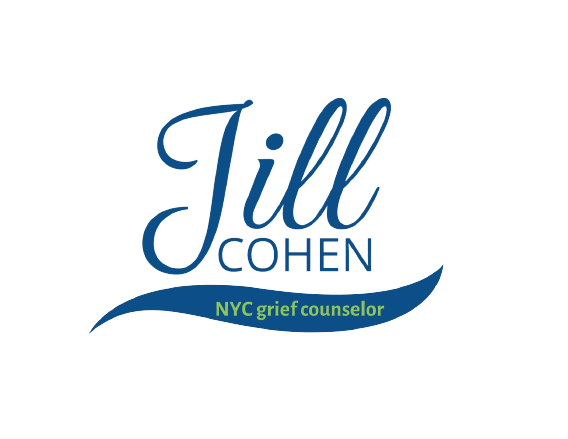When Grievers Play the “Blame Game” and When Guilt Goes with Grief
5 Minute Read
What is the Blame Game?
The BIG B for many grievers is BLAME. And playing the” blame game” is never a good game to play. It’s a game that can consume you forever if you allow it to.
And more importantly, playing the “blame game” isn’t helpful, since it is hurtful and will not bring back your loved one.
Who Plays the Blame Game?
I’ll first tell you that, for more people than not, guilt and blame are partners on their grief journey. So, if you’re reading this, you are not alone.
Blaming others may lead you down the road of long, drawn-out lawsuits that only exacerbate your grieving. Blaming yourself can be catastrophic, and holding on to a lot of blame, as with anger, will be counterproductive to living your life, and will create negative and depleted energy
Blame can be a lifelong feeling, and you’ll need to let it go or find ways to manage it.
Where do the BIG BLAME and the GIGANTIC GUILT feelings come from after a death and why?
It’s in our human nature to feel compelled to find a reason to explain the “why” of circumstances, especially if the death is an untimely one, a surprise one, or even the result of a terminal illness. After all, something unusual can’t just happen on its own, right? And if you can control the situation, you need to find ways to explain the situation to try to understand it.
How often do you hear statements like this after a death:
He always ate the wrong kind of food. I should have watched his diet more carefully.
The family shouldn’t have vacationed in that country with its history of monsoons.
Why did I let my kids drive in the rain on slippery roads?
Why didn’t I notice my loved one’s depression?
Why did the coach let the players play ball in extreme heat without proper hydration?
And on and on it goes.
Why Do Grievers Do This?
Does this ring a bell? Basically, the more random or out of order the loss is, the more judgment, guilt, and blame surround the death.
We cannot justify how someone who was very healthy and physically fit could die in their 30s. Or how a perfectly healthy child can drop dead from what seemed like a head cold. Or how someone could be alive at breakfast time, and be gone by dinnertime. And, shouldn’t smart parents be able to prevent accidents that cause death?
The answer is: there is not always a reason for a death that is directly related to another person, place, or thing. Sometimes, it’s just that random.
And even those interventions that you regret not doing might not have made a difference in the end result.
So, going on the assumption that there MUST be a reason for the death, we find ways to explain the death, and often, the blame goes on the surviving loved one or even, others outside the immediate circle.
HOW TO HANDLE GUILT AND BLAME
Whatsyourgrief.com has a few ideas that I am sharing here with you:
Acknowledge that GUILT is a normal grief emotion. Don’t let others minimize the validity of your grief experience.
Consider what your guilt is all about and try to think about whether it is rational, irrational, or is it about control?
Talk it over with others. Talking about guilt can help you reflect on your grief.
Examine those thoughts. Check out whether or not our guilt thoughts are consuming you. Try to be aware of whether or not they are dragging you down big time. In order to adjust your thinking, you have to know what your guilt thoughts are and notice them when they arise.
If your guilt thoughts are irrational, admit it. It takes a little of the burden off if you acknowledge that you many not actually be guilty. Being honest with yourself about your guilt is important, and accepting that grief is sometimes irrational can be helpful.
Find positive thoughts to balance your guilt thoughts. This is an often-used technique called “thought-stopping.” When you notice a negative thought taking over, make a conscious effort to stop the thought and replace it.
Forgive yourself. Forgiveness can mean accepting that we may have done something we regret, but finding new attitude and perspective toward ourselves in relation to that action. It doesn’t mean we forget, but means we find a way to move forward.
Figure out what you learned. Guilt teaches us something. We can learn and grow from almost any emotion, so try to think of what your guilt thoughts have taught you.
Do something with your guilt. Whether your guilt is rational or irrational, you can use it productively to help others. Educate them so that they can avoid the mistakes you feel guilty about, raise awareness about causes of death, or simply encourage others to talk with their family about end-of-life wishes. Your experiences can help others.
Consider what your loved one would tell you. Put yourself in a space in which you can really focus on thinking about your loved one. Imagine telling them how you are feeling – your regrets, your guilt, all of it. Then imagine what your loved one would tell you. Probably, their response would be, “It’s not your fault.”
Try This Exercise
Try a little thought-stopping the next time the guilt thought comes into your mind. For example:
Instead of: I feel guilty that I didn’t do a particular thing the right way, stop.
Try: I really did quite a lot of things the right way.
If guilt and blame are getting the better of you and your grief is overwhelming, consider grief counseling. Click HERE to download the free tool to help determine if you or someone you love would benefit from a grief counselor.
If you or someone you know would benefit from grief counseling, download my free resource guide or schedule a complimentary phone consultation.



